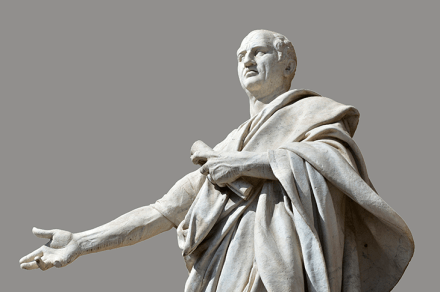Our new MPs should read Cicero
It would make a pleasant change if every elected MP was to make it their ambition to be honestus, Latin for ‘honourable, moral, a person of integrity’. This brought a man high acclaim because by definition he would be useful, i.e. of benefit, to his country. So argued the statesman Cicero in his three-volume On Duties, composed over four frantic weeks in 44 bc, during the civil war and collapse of the Roman Republic after Julius Caesar’s assassination. In the first volume, Cicero identified the roots of moral integrity in man’s natural instincts and powers of reasoning. That turned him into a social being, while reason also instilled in him








